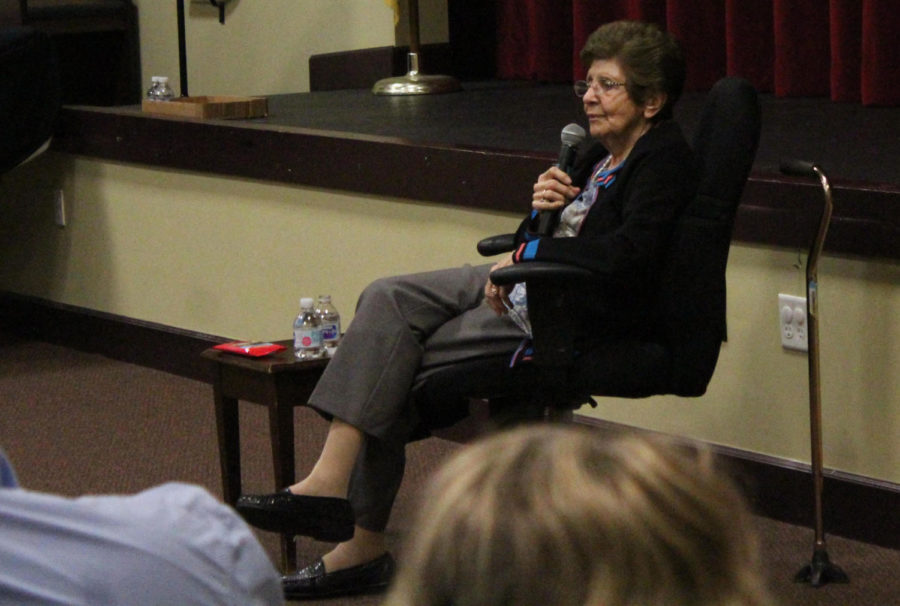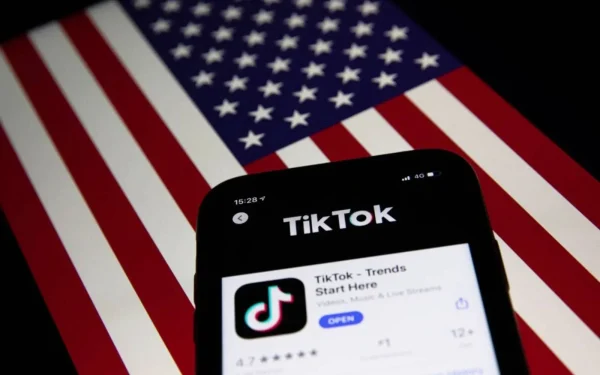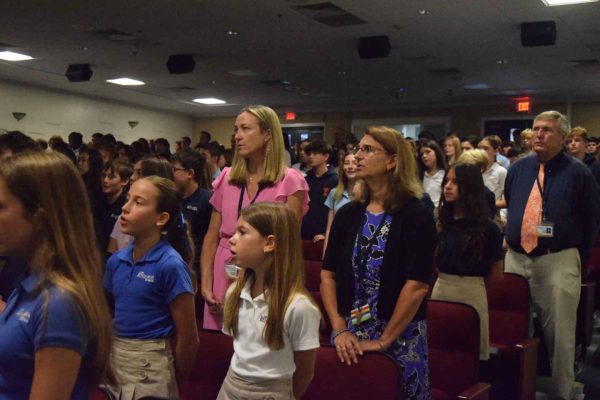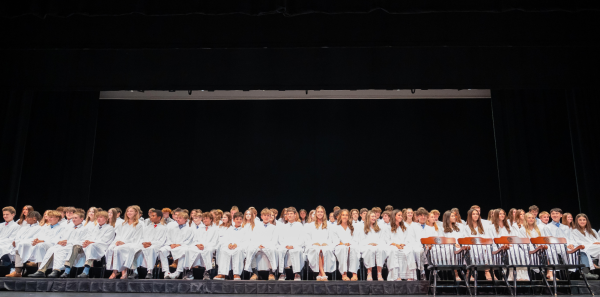Holocaust Survivor Rena Ferber Finder Visits TBS
Holocaust survivor Rena Finder shares her story with the middle school students.
During Hitler’s rise to power in the 1930s and his subsequent rule of Germany leading up to WWII, he oversaw what he called “The Final Solution.” We call this the Holocaust – the systematic killing of approximately 17 million people, mostly Jews, Roma, ethnic Poles, Soviet citizens, Soviet prisoners of war, political opponents, Jehovah’s Witnesses, and the mentally and physically impaired.
“The Holocaust is not only a tragedy of the Jewish people, [but] it is [also] a failure of humanity as a whole,” said Moshe Katsav, a former Israeli politician.
Holocaust survivor Rena Ferber Finder came to the Middle School on December 12 to talk to the students about her experience of living through the Holocaust. During her presentation, the 88-year-old talked about being taken captive by the Nazis when she was just 13. When describing the German invasion of her country, she said, “On September first, [1939], after the Germans invaded Poland, all of a sudden from being a little girl, I became an enemy of the state. My crime was being Jewish.
Finder also spoke about how some of her family was kept safe from Hitler through the efforts of Oskar Schindler, a Jewish sympathizer and the subject of Steven Spielberg’s 1993 film, Schindler’s List. When all was said and done, Schindler saved the lives of more than 1,000 Jews during WWII. Unfortunately, before she and her mother were rescued by Schindler, Finder’s father was held captive and put to death by Nazi soldiers.
Finder told the middle school students in attendance about her childhood in Krakow, Poland, how her family was apprehended by Nazi officials, and about her subsequent imprisonment at Auschwitz-Birkenau, one of the camps where Jews and other prisoners were enslaved and executed.
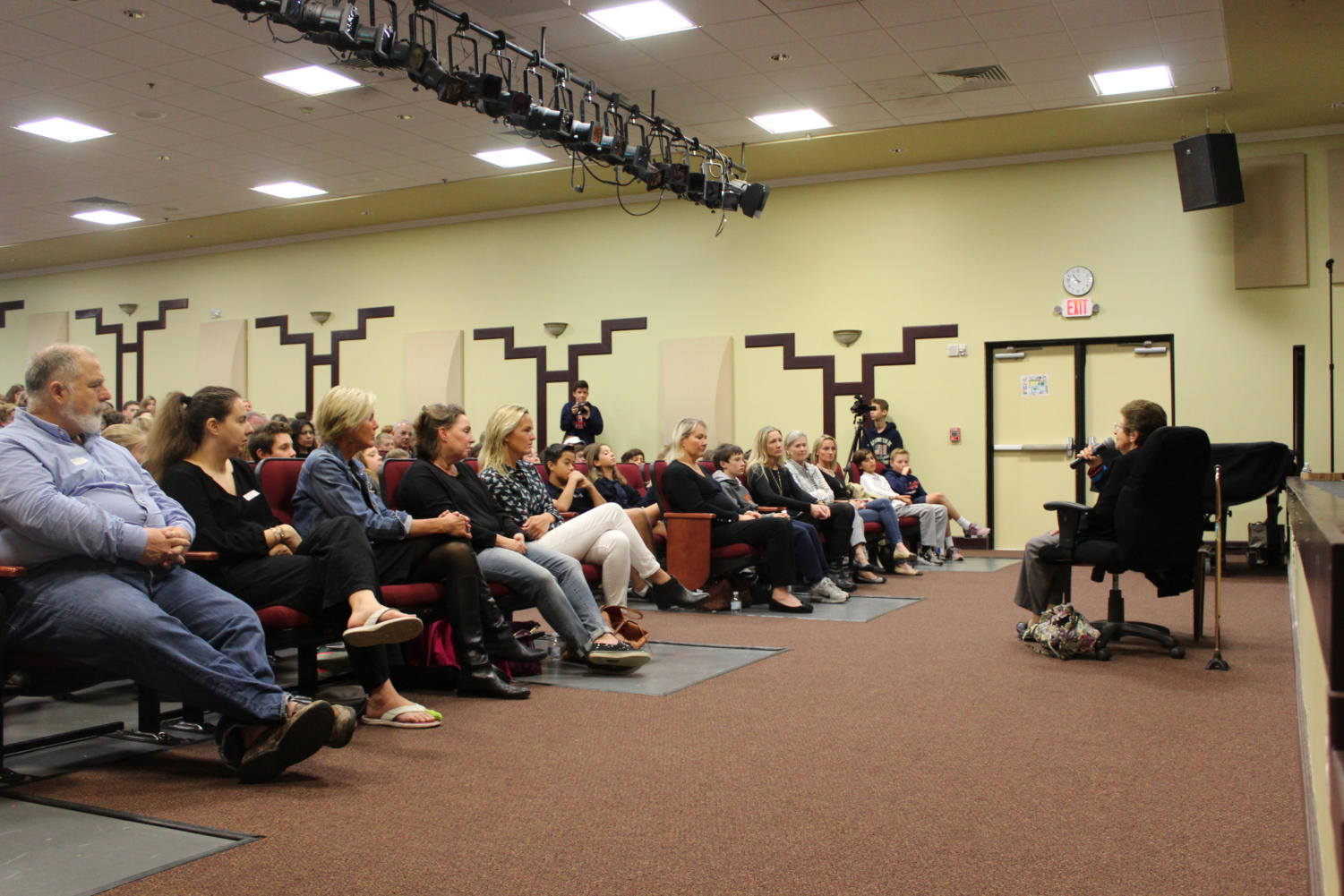
Rena Finder talks to the Middle School about her life during the Holocaust and the struggles she encountered.
“It was so inhuman for the soldiers to be heavily armed with dogs and threatening to kill you,” she said. “And then trucks came in with more soldiers and took parents away from their children, and children away from their parents. Everybody was crying and begging for mercy. The Polish people were walking around, and they didn’t hear the cries, didn’t hear the shooting. “It was like we didn’t exist, they didn’t care.”
Finder’s story not only provides a first-hand account of the unspeakable crimes of Nazi Germany during WWII but also a voice which represents all of the innocent people who were killed during the Holocaust. While at the Auschwitz-Birkenau concentration camp, Finder was witness to many terrible things, such as the head shaving, beatings, and starvation the prisoners had to endure at the hands of the Nazis. Many individuals had to go through various harrowing experiences at the 42,000 concentration camps, ghettos, and incarceration sites run by the Nazis. There were concentration camps in which Nazis used gas chambers, shooting ranges, or even baseball bats to exterminate the Jews.
Finder was one of the few lucky ones who was recruited by Schindler to work in his factory. To this day, Finder is extremely grateful to Schindler, a factory owner and member of the Nazi party who employed approximately 1,200 Jews in his enamelware and ammunitions factories in occupied Poland. He recruited these people to work in his factory, fed them, and provided them with shelter and medical attention. Every time his factory moved at the behest of the Nazis, he moved his family of Schindlerjuden, sometimes through very perilous situations. Little did the Germans know, his goal was to save each and every one on his list.

Oskar Schindler was responsible for saving over 1,200 lives, including the life of Rena Finder.
Schindler not only saved the lives of his employees, but he also sabotaged the German war effort. In his munitions factory, he purposely made defective bullets, and every time a German gun fired one, it broke and wasn’t able to be used again.
Without Schindler, a lot of Jewish people would not be here today. Head of Middle School Mr. Charles Hagy was eager to have Finder talk to the students not only to hear her amazing story but to reinforce the fact that what’s most important in life is the way we treat one another.
“You have two choices, you can go to the dark, or you can go to the light,” said Hagy. “Kindness is where the light is. Kindness not only helps others, it helps yourself. You physically feel better after being kind.”
Social studies teacher Mrs. Christine Ferguson, who helped bring Finder to Benjamin, agrees.
“What could have ultimately changed the outcome of the Holocaust would have been the involvement of more upstanders – instead of bystanders – during this horrific time,” she said.
Finder’s story had a profound effect on the students.
“The most impactful part of Rena Finder’s presentation was that she explained how she survived the Holocaust with Oskar Schindler’s help,” said sixth-grader Emily Simon.
“What hit me the most was when her parents kept on telling her it would be okay even though they didn’t know it was going to be okay,” said seventh-grader Zoe Cooper.
“I think the most interesting part of the presentation was the fact that Rena Finder experienced all of the tragedies throughout the Holocaust herself, and since the [number of] Holocaust survivors [is dwindling], it is very nice that she came and spoke to the students,” said eighth-grader Adam Braman.
Millions of people were tortured and killed during the Holocaust, which wiped out most of the Jewish population in Western Europe. What the Nazis did was horrible and has affected millions of more people since then. Hopefully, with people like Finder sharing her experiences, and with others brave enough to stand up to the hatred, like her hero Oskar Schindler, such an atrocity will never happen again.
